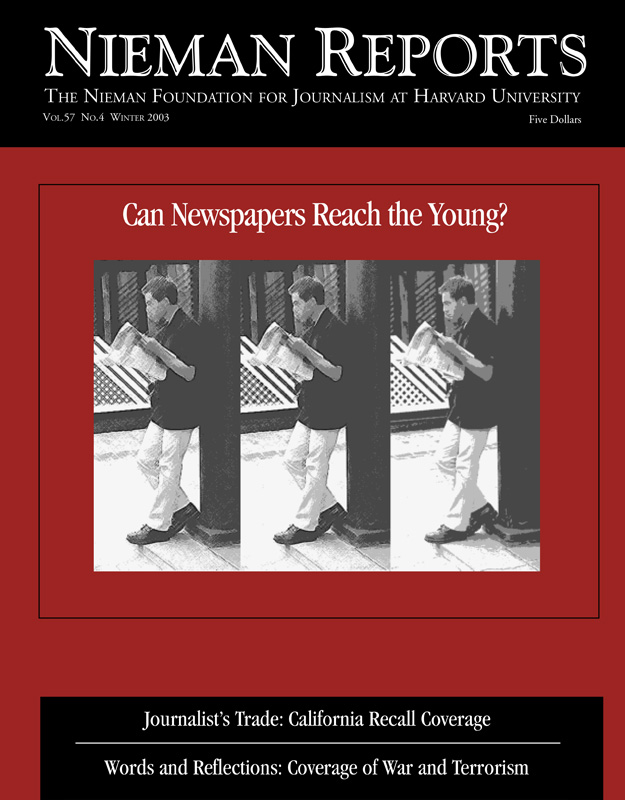ISSUE
Winter 2003

Can Newspapers Reach the Young?
Newspaper reading isn’t a daily habit for most young people. Instead they catch headlines on Web sites, share opinions on Weblogs, and see breaking news alerts along TV scroll bars. Nor do they think they should pay for news reporting. “Deliver the newspaper to me free, and I’ll take a look,” typical young readers tell focus groups as news organizations look for ways to unlock the mysteries of how to connect with these reluctant consumers. – Melissa Ludtke, Editor